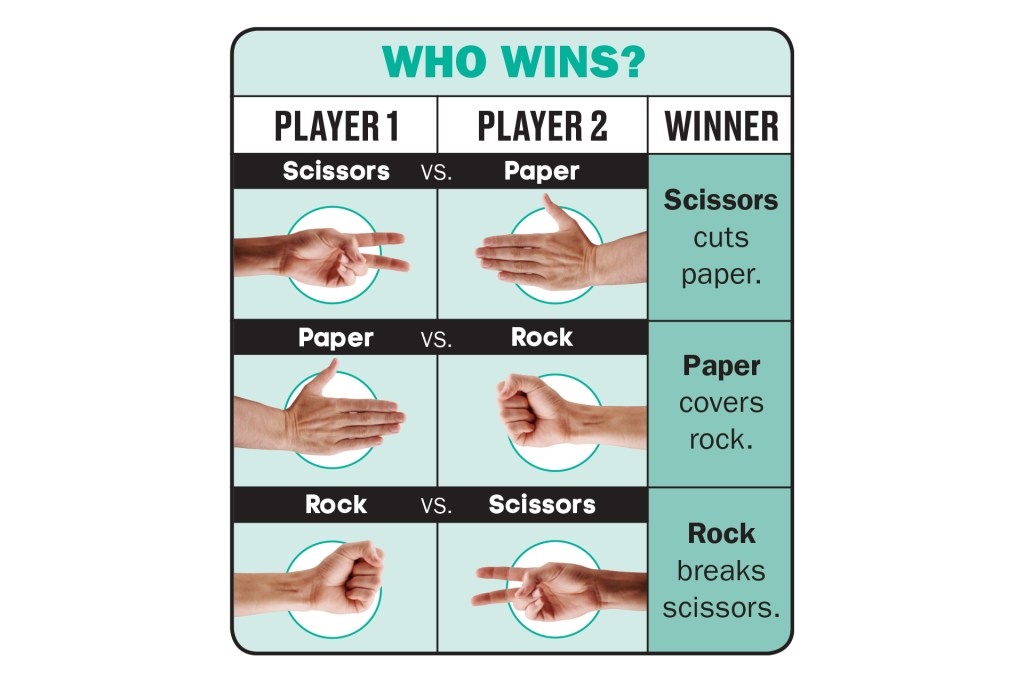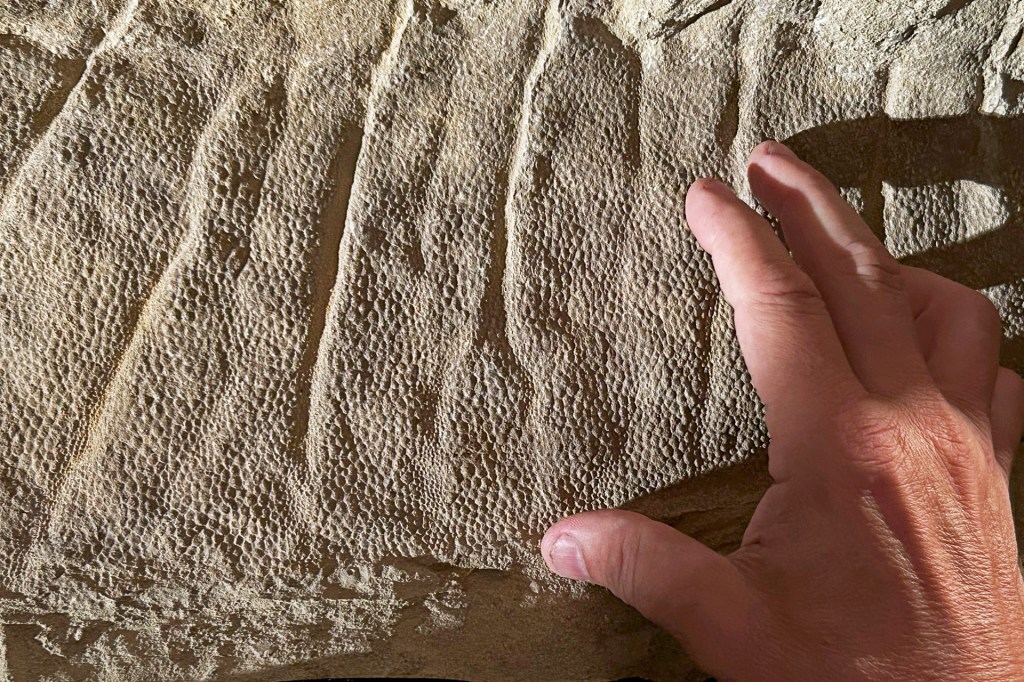
Wyatt Baldwin has been playing rock, paper, scissors for as long as he can remember. While he was growing up, the game helped him settle disagreements with his three older sisters. "I never got the chance to pick what we watched on TV until I learned the sport of rock, paper, scissors," he told TIME for Kids.
Baldwin is the founder and president of the World Rock Paper Scissors Association. He has played in and hosted competitions around the globe. He once enjoyed a 43-game winning streak. The secret to his smashing success? "Look for patterns in either your opponent's moves or behavior," he says. As Baldwin and all serious rock, paper, scissors players know, there's more to the game than luck.
More Than Luck
Rock, paper, scissors probably originated in China about 2,000 years ago. Today, people everywhere play it. While some cultures use different symbols, the idea remains the same. You and an opponent each "throw" one of three hand symbols, and you either win, lose, or tie (see "Who Wins?").

Many people think rock, paper, scissors is all luck. Your probability
probability
 SDI PRODUCTIONS—GETTY IMAGES
the chance that something will happen
(noun)
There is a high probability that James will do well on the test because he's been studying for weeks.
of winning a round seems as good as your chance of losing one. But in reality, the outcome of the game isn't completely random, because human behavior isn't random. There are patterns in the way people make decisions, even quick ones.
SDI PRODUCTIONS—GETTY IMAGES
the chance that something will happen
(noun)
There is a high probability that James will do well on the test because he's been studying for weeks.
of winning a round seems as good as your chance of losing one. But in reality, the outcome of the game isn't completely random, because human behavior isn't random. There are patterns in the way people make decisions, even quick ones.
A 2014 study at Zhejiang University, in China, looked at the psychology
psychology
 DIGITAL VISION—GETTY IMAGES
the study of the human mind and behavior
(noun)
Studying psychology has helped the teacher better understand his students.
of how people play rock, paper, scissors. It followed 360 students in a tournament. Each student played 300 rounds of the game in random groups. Researchers discovered two key patterns: Winners tended to repeat their winning hand symbols. Losers tended to go from rock to paper to scissors.
DIGITAL VISION—GETTY IMAGES
the study of the human mind and behavior
(noun)
Studying psychology has helped the teacher better understand his students.
of how people play rock, paper, scissors. It followed 360 students in a tournament. Each student played 300 rounds of the game in random groups. Researchers discovered two key patterns: Winners tended to repeat their winning hand symbols. Losers tended to go from rock to paper to scissors.
Ready to Rock
Knowing the psychology of rock, paper, scissors isn't a sure ticket to winning a match, but it can help. Ken "Whitey" Watson is one of the best players in the world. According to him, winning the game takes skill and knowledge. "You have to size up your opponent," he says. Though luck and chance play a part, "you have to be prepared and have a strategy. Part of my strategy is being confident."
Confidence comes with practice, and according to Baldwin, "practice, practice, practice" is the key to success. "You can even try practicing against yourself in front of a mirror," he says, "but for me that always ended up in a tie."













